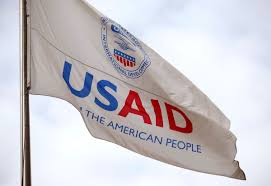Ganta – The sudden halt of U.S. aid under President Donald Trump’s new foreign assistance policy is slashing jobs, stalling critical projects, and threatening the economic stability of local communities in Nimba County. NGOs that once depended on U.S. funding are now scrambling to survive, with staff layoffs mounting and essential programs grinding to a halt.
The United States Agency for International Development (USAID) has been a lifeline for many organizations in Nimba, funding health services, legal aid, and agricultural initiatives. But since the announcement of a 90-day suspension of foreign assistance, the impact has been devastating.
Daniel Nya Gboe, Executive Director of Efficient and Development Institute (ERDI), called the aid pause a “huge setback.” His organization, which relied on USAID for half its funding, has already laid off 12 of its 24 staff. ERDI’s Access to Justice and Health programs—covering sexual and gender-based violence (SGBV) awareness and healthcare monitoring—are now at risk.
John Alexander Nyahn of Community Health Education and Social Services (CHESS) painted an even grimmer picture, warning that the suspension could be worse than the Ebola and COVID-19 crises combined. “USAID provides about 75% of malaria drugs in our health centers. Without that support, malaria cases will skyrocket,” he cautioned. His organization has had to cut nearly half of its workforce, putting more livelihoods in jeopardy.
Stanley Browne of Agapeson Agribusiness Accessories (AAA) revealed that his organization, which trains farmers to supply cassava-based food products to the World Food Programme (WFP), is now paralyzed. The freeze on funding means no salaries for staff and no support for farmers in Nimba, Montserrado, and Bong counties.
The economic ripple effect is hitting families and small businesses as job losses increase. More than 100 people within the civil society sector in Nimba have been laid off, leaving families struggling and local communities without the services they relied on. Some NGOs, like the Sustainable Initiative for Community Empowerment (SICOE), have seen their operations nearly collapse, with staff reductions and canceled projects.
As the crisis deepens, NGO leaders are calling on the government to step in. Some are exploring alternative funding sources, including private sector partnerships, agriculture-based income generation, and advocacy for more local support. Despite the dire circumstances, they remain determined to sustain their missions.
“As we endure this 90-day pause, we must rethink our funding models,” urged AAA’s Stanley Browne. “If we don’t, many of our organizations—and the communities we serve—won’t survive.”









Discussion about this post